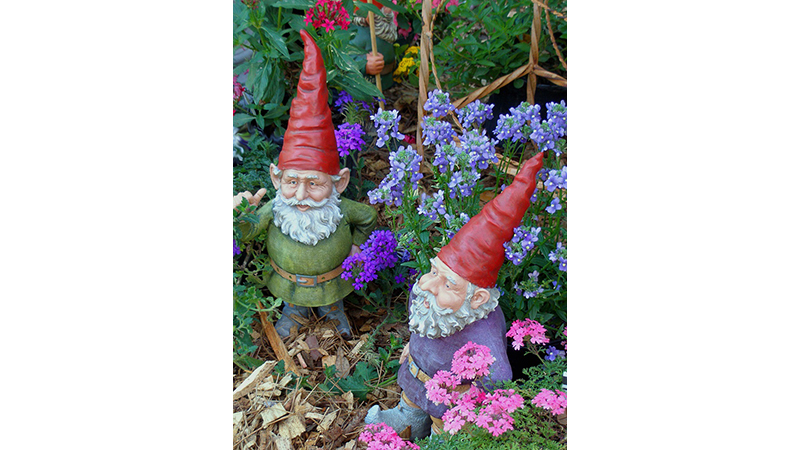Finding homes for my gnomes when I’m gone
Published 1:00 pm Sunday, November 7, 2021
|
Getting your Trinity Audio player ready...
|
Not trying to be morbid, but I’ve been wondering lately where my treasured old garden gnomes land when I’m gone.
That is the premise of a blog I did a couple of years ago, after rescuing a handful of precious hand-painted garden figurines from a trash dump in northern England, and rehoming them to my Mississippi garden. For whatever reasons, the diminutive antiques, worn but obviously well-loved, were not appreciated by whoever had inherited their garden.
But what will happen to them, and Granny’s concrete chicken and all my bottle trees, when I pass on to the Great Compost Heap?
Before anyone jumps to conclusions, I am healthy and fit, and not planning on moving. Just getting older, more introspective, and inspired by COVID to consider my fate, and that of a lifetime of accumulated possessions.
Keep in mind that for many years I have endured the helpless frustration of trying to help distraught folks having to dispose of groaning book shelves, overstuffed tool sheds, and highly-personalized garden beds left behind by deceased loved ones. And the truth is, other than a few heirloom or valuable tools or valuable plants, nobody really wants them.
This in mind, knowing that someday my grown children will have to decide what to do with my well-worn books and seriously cluttered plants and collectable garden art. Some of it is valuable, but so highly tailored to my taste it would take a miracle to find new homes for them.
So, understanding that very few people will actually care about my fancies, and not wanting to burden anyone with a selfish “it won’t be MY problem after I’m gone” approach, I am disciplining myself to be less clingy, by beginning to declutter. I’d rather do it myself, cherishing memories as I go, than saddle others with the chore.
And it has turned out to be a mentally and emotionally liberating process.
The trendy term for this unburdening approach by organizing and giving away belongings before someone else has to do it, is a Swedish concept called döstädning (dos-STAD-ning), which has the macabre translation of “death cleaning.”
It isn’t a sad race to get rid of stuff; it’s about finding a way to enhance the pleasures of living a more unhindered life.
In my case, it’s been easy enough to get rid of broken tools and other junk in my tool shed, and purging outdated or no longer useful books. But this is far more than just a long put-off cleaning up; it has turned into a deliberate plan for improving the quality of my life by downsizing and organizing whatever is left and still needed or actively enjoyed.
I’ve long joked to garden friends (and alerted my family to this) that they should just come by and take whatever they want, and put the rest in a Dumpster. I even have a list of what and where the most valuable or rare collector-type plants are, and how to dig and move them successfully. Really.
But last year I asked my landscape architect friend Rick Griffin, who inspired and guided many of my celebrated garden design features, to help me start decluttering my own celebrated cottage garden. After streamlining and simplifying flowerbeds to better showcase just my favorites, we enlarged flagstone and crushed slate areas for more people space and less planting, mulching, and weeding.
And it looks better. And I feel better. Learning to just say no to new plants I can easily admire elsewhere, and letting go of accumulated stuff, has been therapeutic. Life enhancing.
Anybody want to care for some perpetually-cheery third-hand gnomes?
Felder Rushing is a Mississippi author, columnist, and host of the “Gestalt Gardener” on MPB Think Radio. Email gardening questions to rushingfelder@yahoo.com.





